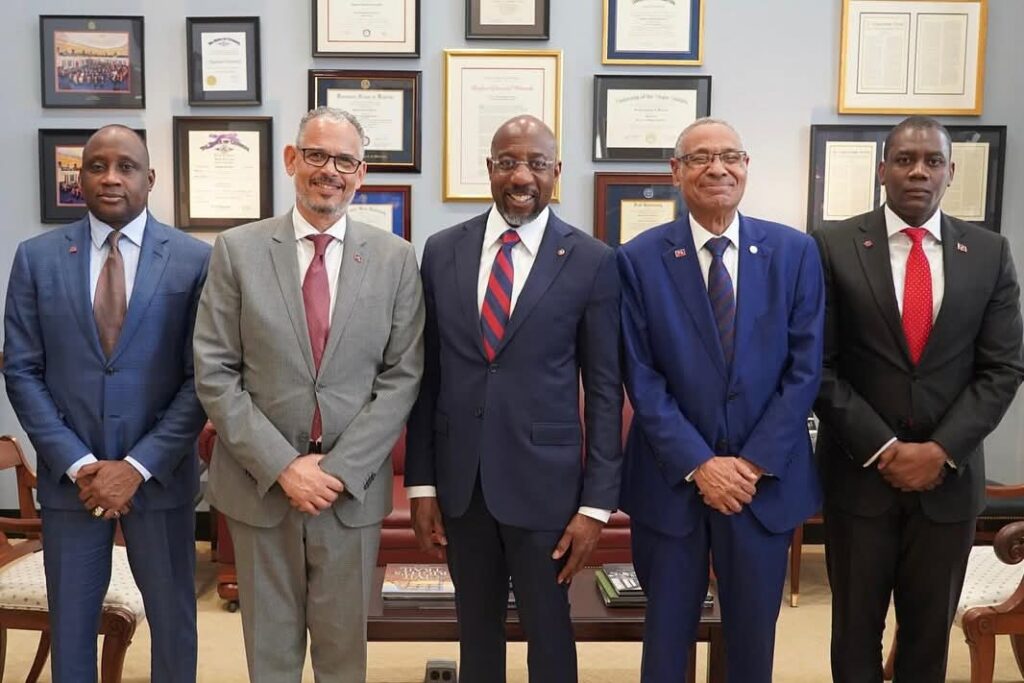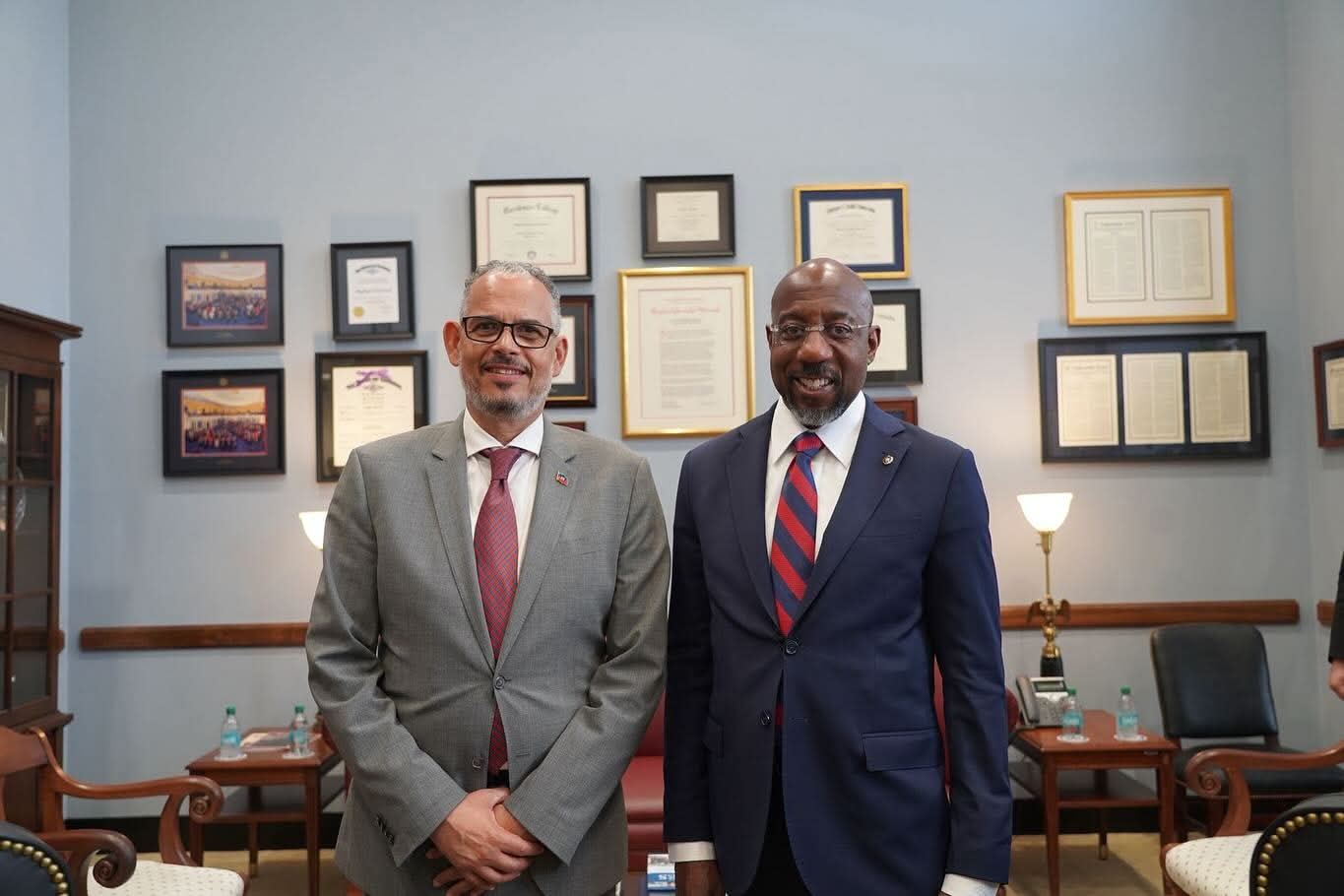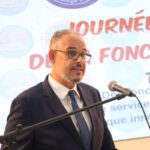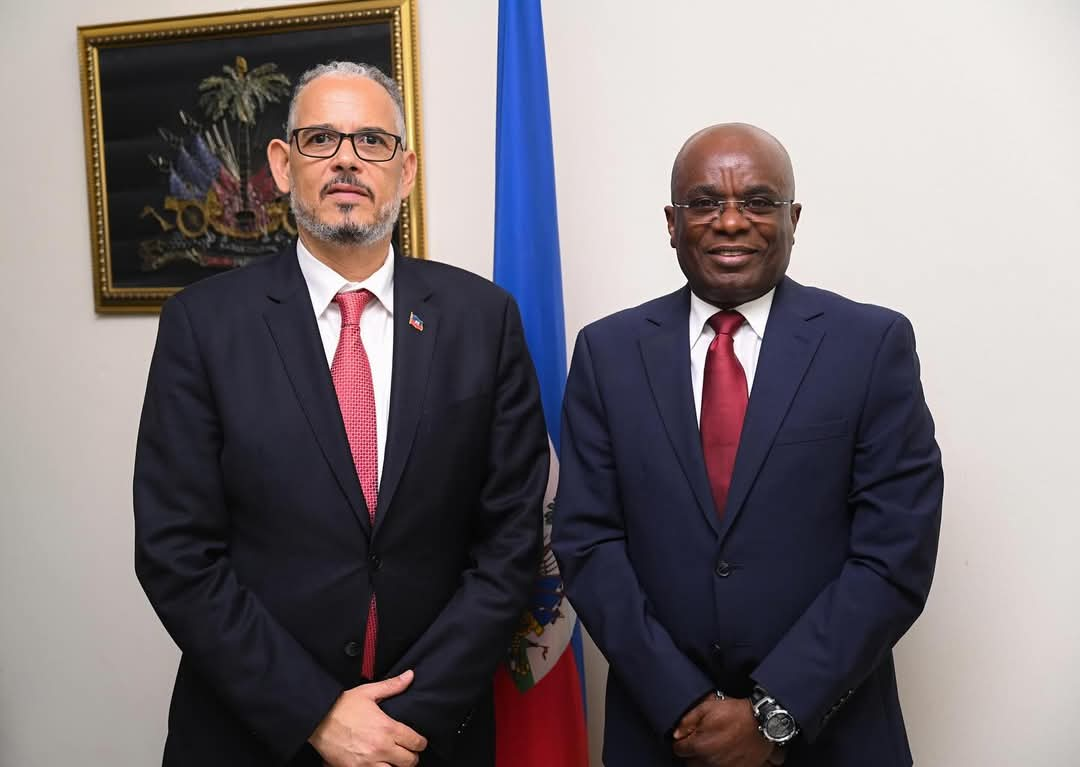When Prime Minister Alix Didier Fils-Aimé traveled to Washington in mid-July, his schedule was packed. Yet behind the many official meetings, one conversation stood out for its clarity and lack of ambiguity: the July 15th session with Georgia Senator Raphael Warnock. This was no routine diplomatic handshake. It was a frank and strategic exchange that placed the plight of Haitians living under Temporary Protected Status (TPS) at the heart of a new political conversation in the U.S. capital.

A meeting that went beyond security
For months, Washington’s approach to Haiti has focused on gangs, violence, and the deployment of an international security mission. In his meeting with Senator Warnock, Fils-Aimé agreed that restoring law and order is urgent, but he made sure the discussion didn’t stop there. He brought another critical point to the table: the imminent termination of TPS for Haitians in the United States.
According to sources present in the room, the Prime Minister argued that deporting families to Port-au-Prince at a time of extreme insecurity and institutional paralysis would be both “dangerous and morally indefensible.” He emphasized that tens of thousands of Haitians contribute to the U.S. economy and are building stable lives – sending them back into chaos would only worsen a fragile situation.
The discussion also touched on the HOPE/HELP trade preferences, a program that allows Haiti to export apparel to the U.S. duty-free. “Without an economy, security collapses,” the Prime Minister said, underscoring that job creation and economic stability are inseparable from the broader security effort.
Ten days later, a Senate response
Barely ten days after that meeting, a group of nine senators sent a formal letter to Secretary of State Marco Rubio and Homeland Security Secretary Kristi Noem. Among the signatories were Edward Markey, Raphael Warnock, Elizabeth Warren, Bernie Sanders, Chris Van Hollen, Alex Padilla, Adam Schiff, Peter Welch, and Cory Booker.
The letter questions the logic of ending TPS for Haitians at the very same time that U.S. private military contractors are being deployed to Port-au-Prince. It demands answers by August 15 on the criteria used for ending the program, on the legality of these contractors’ operations, and on the contradiction between calling the country “too dangerous for Americans” while claiming it is safe enough for deportations.
In one striking passage, the senators write that the U.S. government “cannot have it both ways,” pointing out that an already fragile multinational mission is undermined by the involvement of private companies in combat operations.
Markey’s public statement shakes things up
Senator Edward Markey amplified the letter’s message by going public. On his social media accounts, he wrote in French and English:
Secretary Rubio and Secretary Noem can’t have it both ways. If Haiti is stable enough to end TPS, why are US private military contractors preparing for combat operations in Port-au-Prince?Senator Warnock and I are demanding answers by August 15. You can’t deport people into a war zone.”
This short but forceful statement was widely shared by Haitian communities in the U.S. and beyond. It resonated because it puts human lives ahead of political convenience. In just a few lines, Markey reframed the TPS debate as a test of moral responsibility.
TPS becomes the key issue in Washington
In recent months, security, gangs, and elections dominated every conversation about Haiti in Washington. But since the Prime Minister’s mission, the political spotlight has shifted. The end of TPS has become a defining issue, and the bipartisan discussions it has triggered are proof that this diplomatic visit changed the tone of the conversation.
For Haitians living under TPS, the stakes couldn’t be higher. Deportations would mean a return to a country overwhelmed by armed groups, crumbling institutions, and no real safety nets. For many families, this status is not just paperwork; it is the thin line separating them from catastrophe.
What comes next?
The Prime Minister’s Washington trip was not limited to this one meeting. He also held talks at the White House with the National Security Council, with Deputy Secretary of State Christopher Landau, at the Organization of American States, and with members of both chambers of Congress. These meetings addressed security, the role of the multinational force, electoral planning, and trade policy.
The immediate political ripple from these efforts is clear: ten days after Fils-Aimé’s sit-down with Warnock, the TPS debate has re-emerged as a top priority, backed by nine senators and amplified by a high-profile social media campaign.
Whether these efforts will lead to concrete decisions – the renewal of HOPE/HELP, better support for the multinational force, and above all, the extension of TPS – is something Haitians will now have to wait and see. One thing is certain: the diplomatic offensive launched in mid-July has already moved the conversation in Washington.





